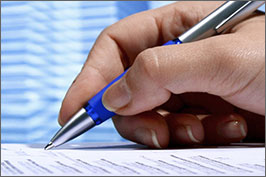Timing end of year business expenses
As the year draws to a close, businesses are presented with a strategic opportunity to engage in tax planning that can significantly impact their financial landscape. Companies should be aware that in addition to their expenses, the timing of those expenses plays a pivotal role in optimizing tax liabilities and setting the stage for a prosperous year ahead.
Tax planning involves a careful examination of both revenue and expenses. Regarding the expenses portion, businesses aiming to reduce their tax liability should pay special attention to the timing of their end-of-year business expenses. By strategically allocating resources, companies can not only minimize their current tax burden but also position themselves for a successful start in the upcoming fiscal year.
Proactive management of end-of-year business expenses ensures that your company is financially prepared for the challenges and opportunities that lie ahead. The importance of timing in tax planning cannot be overstated, and competent tax advisors can provide insights into how businesses can navigate this critical aspect of financial management.
CTA – What makes us different

Upgrades everywhere
Investing in your business is not just a strategic move; it can also be a smart tax planning decision. As the year comes to an end, many businesses find themselves in a unique position to make significant upgrades. This could involve acquiring new equipment, undertaking renovations, or implementing improvements that contribute to the overall growth and efficiency of the company.
Seizing opportunities for growth
Businesses that want to spend more at the end of the year can take advantage of various avenues for expansion that serve multiple purposes. Acquiring new equipment not only boosts operational efficiency but may also qualify for favorable tax treatment. Renovations to your business premises could also have tax implications, making it a worthwhile consideration as part of your year-end strategy.
Aligning business expenses with tax objectives
Successful companies are aware of the benefits of making strategic business expenses at the end of the year. By aligning upgrades with tax planning objectives, businesses can optimize their financial position and ensure that every dollar spent contributes to both immediate and long-term financial goals.
Testimonial
The advice your business needs
Understanding how much to spend and what to buy can be challenging, and businesses should seek advice on the most effective ways to reduce their tax liability. This will enable them to make more informed decisions about end-of-year business expenses, covering both the professional and personal finances.
And there is no “one size fits all” solution: Making the right moves in timing end-of-year business expenses requires a nuanced approach. Businesses should seek practical advice on how to evaluate their options and thereby make decisions that most closely align with their financial goals. Common questions include whether it is better to buy a house at the end of the year or the beginning, considering both business and personal financial perspectives.
Tailoring strategies to your business
Ultimately, the advice your business needs is unique to its individual circumstances. Within the parameters of your business, you would be well advised to explore ways to customize your approach to end-of-year business expenses, ensuring that each of your decisions aligns with your overall financial strategy.
CTA – Who we serve

